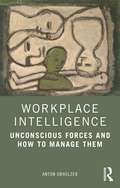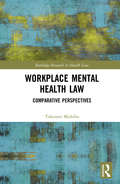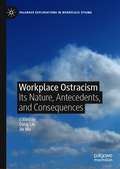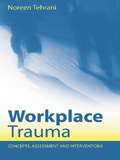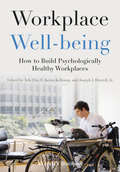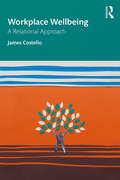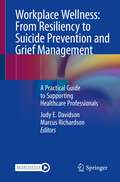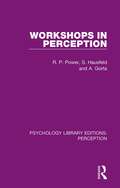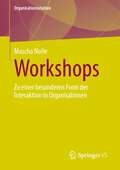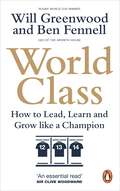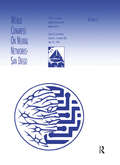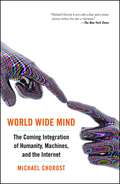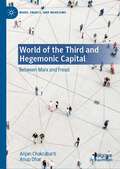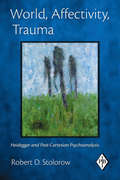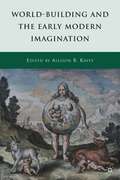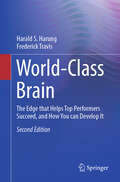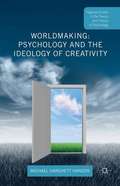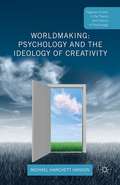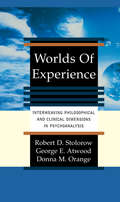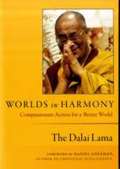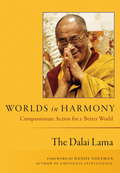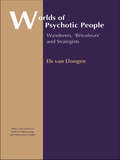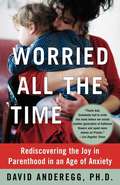- Table View
- List View
Workplace Intelligence: Unconscious Forces and How to Manage Them
by Anton ObholzerWorkplace Intelligence provides a range of insights into the unconscious processes at play in the workplace and an introduction to a balanced approach to organizations. The book explores key concepts, showing how our emotions and early experiences inform the roles we play at work, as well as how we react to other people. It encourages close observation and reflection and utilization of this knowledge for managing ourselves and others fruitfully. It also provides managers with the methods to intervene and tackle these issues, elaborating on topics from leadership and group dynamics to meetings and work-life balance. The book will be a fascinating read for those in leadership roles, organizational consultants, executive coaches, students of occupational psychology, as well as anyone interested in understanding workplace dynamics in general.
Workplace Mental Health Law: Comparative Perspectives (Routledge Research in Health Law)
by Takenori MishibaThis book provides a systematic and interdisciplinary study of occupational mental health legislation in seven countries. The work presents a study of the laws, policies, and legal interpretations to help prevent mental health problems from occurring in the workplace and appropriately address problems once they do occur. With a view to improving provision in Japan, the author examines the legal issues relating to workplace mental health and stress in the USA, UK, Denmark, the Netherlands, France and Germany. In presenting a comparative discussion of mental health issues in the workplace, this book seeks to establish a minimum for legal rights and duties that contribute to prevention and not just compensation. With its detailed comparative and descriptive coverage of legal and related provisions in a range of countries, the book will be a valuable resource for academics, policy-makers and practitioners working in labour and employment law, social welfare, occupational health and human resource management.
Workplace Ostracism: Its Nature, Antecedents, and Consequences (Palgrave Explorations in Workplace Stigma)
by Cong Liu Jie MaWorkplace mistreatment is a burgeoning topic of interest, with the majority of workers having experienced it in some form. This book explores workplace ostracism and its negative effects on employee and organizational outcomes, such as employee attitudes, behaviors, and well-being. This edited volume defines workplace ostracism and examines how to differentiate ostracism from other type of workplace mistreatment, such as workplace incivility and interpersonal conflict. Among the questions it seeks to answer are: 1) what are the individual, relational, and contextual factors that influence employees’ workplace ostracism experiences; and 2) what constitutes ostracism in stigmatized populations, such as international students, immigrant workers, and older workers. Researchers in organizational behavior, I/O psychology, and the sociology of work will find this book to be a valuable resource.
Workplace Trauma: Concepts, Assessment and Interventions
by Noreen TehraniHow can organisations defend their employees against psychological trauma? Post-traumatic stress is a topical subject of increasing importance. Yet much of the writing on this subject so far has concerned stress suffered by people exposed to serious turmoil such as war and ethnic conflict. Workplace Trauma is an extremely welcome presentation of the subject of stress in the workplace. This book explores the ways that traumatic events impact the psychological well being of organisations and their employees. The effects of disasters, accidents, crime, injury and death are examined alongside examples of organisational trauma care programmes and reviews of the current thinking regarding post trauma interventions. The insights generated are illustrated with case studies from the author's extensive experience of counselling victims of trauma at work. The theory, research and practical advice contained in this volume will prove a valuable resource for organisations and practitioners seeking guidance on reducing the impact of psychological trauma.
Workplace Well-being: How to Build Psychologically Healthy Workplaces
by Arla Day E. Kevin Kelloway Joseph J. HurrellWorkplace Wellbeing is a complete guide to understanding and implementing the principles of a psychologically healthy workplace for psychologists and other practitioners. Grounded in the latest theory and research yet filled with plenty of case studies and proven techniques Introduces the core components of psychologically healthy workplaces, including health and safety, leadership, employee involvement, development, recognition, work-life balance, culture and communication Addresses important issues such as the role of unions, the importance of leadership, healthy workplaces in small businesses, respectful workplace cultures, and corporate social responsibility Discusses factors that influence the physical safety of employees, as well as their physical and psychological health Brings together stellar scholars from around the world, including the US, Canada, Europe, Israel, and Australia
Workplace Wellbeing: A Relational Approach
by James CostelloWorkplace Wellbeing – A Relational Approach presents the most important, insightful and up-to-date academic thinking and research related to flourishing at work. It also describes the transformative humanistic skills, values, and attributes ordinarily adopted by counsellors and psychotherapists alike, and shows how they may be transferred from a therapeutic setting to the workplace. Integrating ideas and strategies from counselling and psychotherapy, the book gathers together a wealth of accessible, interactive exercises and resources to help develop the skills and personal awareness to thrive in organisations. Workplace Wellbeing – A Relational Approach examines how we can create an emotionally healthy workplace for all of us. It will prove useful for counsellors and psychotherapists alike, whether in training or practice in an organisational setting. More importantly, however, it is designed to be of value to the non-specialist, particularly those working in business, education, healthcare, human resources, occupational health, and organisational psychology.
Workplace Wellness: A Practical Guide to Supporting Healthcare Professionals
by Judy E. Davidson Marcus RichardsonThis book uniquely provides actionable strategies along the wellness continuum in multiple dimensions: personal, institutional and professional; while applicable across disciplines: nursing and allied health, advanced practice providers and physicians. Further, the content is presented in a manner that can be taught to those entering the workforce, or serve as a primer for Wellness Officers. Most mental health texts focus on the needs of patients and ignore the mental health needs of clinicians. This book fills that gap embracing wellness initiatives as a matter of mental health. Wellness strategies for Inclusion Diversity and Equity are presented. The often ignored subject of suicide is approached head-on with evidence-based strategies for prevention. At the far end of the continuum of wellness, grief management after losing a colleague to death and/or suicide will be addressed. Each chapter includes learning objectives, a brief presentation of the science, application of principles into wellness practice, opportunities for future research and discussion questions. Artwork created by healthcare workers are included to augment transfer of knowledge through art as a way of knowing. Videos are offered to demonstrate through simulation lessons taught through the book.
Workplace-Based Assessments in Psychiatric Training
by Dinesh Bhugra Amit MalikIn psychiatry, as in many other medical disciplines, training is shifting from an emphasis on testing factual knowledge towards a system based on continuing assessment and the acquisition of practical skills and competencies. Workplace Based Assessments in Psychiatric Training describes current approaches to these new assessment systems around the world, provides practical advice regarding their implementation and makes recommendations for future developments. The book opens with an overview and analysis of methods of workplace based assessments, followed by a review of the trainee assessment from the patient perspective. Chapters contain in-depth, detailed discussion of recent developments in Canada, Denmark, India, the UK and the USA. The book reviews both technical developments in assessment tools and techniques and the socio-political context within which these have taken place. With a practical focus and unique global perspective, this is a 'must buy' for anyone responsible for the supervision of psychiatric trainees.
Workshops in Perception (Psychology Library Editions: Perception #25)
by R. P. Power S. Hausfeld A. GortaOriginally published in 1981, Workshops in Perception is designed to enable students to devise their own experiments in sensory processes or perception. The thirty workshops include over a hundred different possible student projects covering the full range of the senses and interactions among them. The topics range from simple perimetry to the perception of language and social situations. In addition to more traditional topics such as illusions, adaptation and after-effects, they include lifespan perceptual development, musical illusions, and even a consumer-oriented study of road atlases. Each of the ten major sections has a general introduction to the topic with suggestions for reading. Each workshop has a more specific introduction to its topic, and an experiment outlined. A typical outline will suggest more independent variables than a student can handle, and it is up to the student to select the variables he considers important and to choose the appropriate levels of the variables. Although many suggestions are made regarding the actual running of each workshop, deciding precisely how to carry out the experiment is left up to the student. Pilot work and consultation with the tutor is encouraged. Suggestions for the form of the analysis are made, but again the details are left to the student. Several alternatives to the main workshop are outlined briefly, and these are suited to the more adventurous or advanced student. Thus the book is suited to students with a wide range of ability.
Workshops: Zu einer besonderen Form der Interaktion in Organisationen (Organisationsstudien)
by Mascha NolteWorkshops erfreuen sich in Organisationen anhaltend großer Beliebtheit. In Unternehmen, Verwaltungen, Parteien, Universitäten oder etwa Schulen werden sie regelmäßig genutzt, um drängende Organisationsthemen zu bearbeiten. Trotz der weiten Verbreitung des Workshops ist dieser bislang kaum erforscht. Insbesondere die interaktiven Besonderheiten und Dynamiken des Formats wurden bisher nicht systematisch in den Blick genommen: Welchen Regeln gelten für Wahl von Themen im Workshop? Wie unterscheiden sich die typischen Workshoprollen – Moderatoren, Teilnehmende und Auftraggeber – voneinander? Was passiert in der Zeit vor, nach und während der Veranstaltung? Welche Auswirkungen hat der Raum für die Interaktion? Mithilfe eines interaktionssoziologisches Begriffsrepertoires wird die besondere ,Interaktionsordnung‘des Workshops dargestellt. Die primär theoretischen Überlegungen sind dabei so angelegt, dass sich aus ihnen nützliche Reflexionsfragen für die Praxis all derjenigen, die in Organisationen mit Workshops zu tun haben, ableiten lassen.
World Class: How to Lead, Learn and Grow like a Champion
by Will Greenwood Ben FennellWhat gives the world's best leaders the edge? Will Greenwood is best known for being an integral part of the 2003 Rugby World Cup-winning team. Ben Fennell has spent over 16 years helping the world's biggest businesses and brands grow. Together, they have established that world-class performance - in both business and sport - requires a fresh approach, and a new set of behaviours.Having spoken to inspirational leaders across all areas of business and sport, including Michael Johnson, Tanni Grey-Thompson, Rio Ferdinand, Dame Carolyn McCall, Dave Lewis and Sir Clive Woodward, the authors have identified the key characteristics of world-class performance. These guiding principles of celebrating difference, forging togetherness and accelerating growth constitute a new framework for modern leadership. Packed with insightful personal stories, and often painfully learnt lessons, Will and Ben offer a new playbook for world-class leadership, learning and growth.
World Congress on Neural Networks: 1994 International Neural Network Society Annual Meeting (INNS Series of Texts, Monographs, and Proceedings Series)
by 1994 INTERNATIONAL NEURAL NETWORK SOCIETY ANNUAL MEETINGCentered around 20 major topic areas of both theoretical and practical importance, the World Congress on Neural Networks provides its registrants -- from a diverse background encompassing industry, academia, and government -- with the latest research and applications in the neural network field.
World Englishes in English Language Teaching
by Alex BarattaThis book provides an in-depth exploration of World Englishes and their place in the English as a Foreign Language (EFL) classroom. It opens with a critical assessment of the research to date that includes analysis of competing and complementary terms such as English as an International Language (EIL), Global English, English as a Lingua Franca (ELF) and 'Glocal English'. Here, and throughout the work, the author problematizes the terminologies used to define and describe Englishes, arguing for example for the need to distinguish between Chinglish and China English. The book then turns to an examination of three case study varieties of non-inner circle English: Konglish, Singlish and Indian English; before exploring the results of an original empirical study into language attitudes concerning several varieties of English among language teachers and learners. Finally, sample exercises for the classroom are provided. This book will be of particular interest to language teachers and teacher trainers, and to students and scholars of EFL and applied linguistics more broadly.
World Wide Mind: The Coming Integration of Humans and Machines
by Michael ChorostWhat if digital communication felt as real as being touched? This question led Michael Chorost to explore profound new ideas triggered by lab research around the world, and the result is the book you now hold. Marvelous and momentous, World Wide Mind takes mind-to-mind communication out of the realm of science fiction and reveals how we are on the verge of a radical new understanding of human interaction. Chorost himself has computers in his head that enable him to hear: two cochlear implants. Drawing on that experience, he proposes that our Paleolithic bodies and our Pentium chips could be physically merged, and he explores the technologies that could do it. He visits engineers building wearable computers that allow people to be online every waking moment, and scientists working on implanted chips that would let paralysis victims communicate. Entirely new neural interfaces are being developed that let computers read and alter neural activity in unprecedented detail. But we all know how addictive the Internet is. Chorost explains the addiction: he details the biochemistry of what makes you hunger to touch your iPhone and check your email. He proposes how we could design a mind-to-mind technology that would let us reconnect with our bodies and enhance our relationships. With such technologies, we could achieve a collective consciousness--a World Wide Mind. And it would be humankind's next evolutionary step. With daring and sensitivity, Chorost writes about how he learned how to enhance his own relationships by attending workshops teaching the power of touch. He learned how to bring technology and communication together to find true love, and his story shows how we can master technology to make ourselves more human rather than less. World Wide Mind offers a new understanding of how we communicate, what we need to connect fully with one another, and how our addiction to email and texting can be countered with technologies that put us--literally--in each other's minds.
World of the Third and Hegemonic Capital: Between Marx and Freud (Marx, Engels, and Marxisms)
by Anjan Chakrabarti Anup DharThis book brings together Marxian philosophy and Lacanian psychoanalysis to argue that the hegemonic form of global capital is founded on the foreclosure of class and world of the third. The authors counterpose the world of the third to the mainstream notion of the third world, seen as a lacking other in desperate need of aid and development. Thus, for them, the hegemonic form of global capital is engendered through the foregrounding of the poor, victim third world and the foreclosure of the non-capitalist world of the third. Building on what they characterize as an ab-original reading of Marxian historical materialism and the Lacanian real, the authors seek to conceptualize a counter-hegemonic revolutionary subject as a basis for postcapitalist alternatives to the hegemonic form of global capital.
World, Affectivity, Trauma: Heidegger and Post-Cartesian Psychoanalysis (Psychoanalytic Inquiry Book Series)
by Robert D. StolorowStolorow and his collaborators' post-Cartesian psychoanalytic perspective – intersubjective-systems theory – is a phenomenological contextualism that illuminates worlds of emotional experience as they take form within relational contexts. After outlining the evolution and basic ideas of this framework, Stolorow shows both how post-Cartesian psychoanalysis finds enrichment and philosophical support in Heidegger's analysis of human existence, and how Heidegger's existential philosophy, in turn, can be enriched and expanded by an encounter with post-Cartesian psychoanalysis. In doing so, he creates an important psychological bridge between post-Cartesian psychoanalysis and existential philosophy in the phenomenology of emotional trauma.
World-Building and the Early Modern Imagination
by Allison B. KaveyThe early modern period was rife with attempts to re-imagine the world and the human place within it. This volume looks at natural philosophers, playwrights, historians, and other figures in the period 1500-1700 as a means of accessing the plethora of world models that circulated in Europe during this era.
World-Class Brain: The Edge that Helps Top Performers Succeed, and How You can Develop It
by Harald S. Harung Frederick TravisThis book tells the story of world-class performers and offers an easy-to-read introduction to research showing that their brain function is different from the brains of average performers. No surprise there. But what is surprising is that regardless of whether these top performers are athletes, musicians, or CEOs, their brains share one feature that makes them stand out: more integrated functioning. Their brains work in a more coherent, relaxed, wakeful, and efficient way. Other features these top performers have in common include intensely happy and fulfilling peak experiences and a greater moral sense. Readers also learn how they, too, can effortlessly develop greater brain integration. About the authors: Dr. Harald S. Harung is an interdisciplinary peak performance researcher at Oslo Metropolitan University in Norway. For many years he taught &“Leadership, ethics, and world-class performance&” to classes of up to 500 students. Harald holds a Ph.D. from the University of Manchester, and has worked as a researcher at Oxford University, naval officer, CEO of an engineering company, and president of an international business college. Dr. Frederick Travis has been Director of the Center for Brain, Consciousness, and Cognition at Maharishi International University in the US since 1990. His work has focused on brain development from birth to adulthood, higher states of consciousness, and the effects of meditation experiences on the brain. Fred and Harald were the first researchers in the world to find a brain basis of high performance.
Worldmaking: Psychology and the Ideology of Creativity (Palgrave Studies in the Theory and History of Psychology)
by Michael Hanchett HansonWorldmaking
Worldmaking: Psychology and the Ideology of Creativity (Palgrave Studies in the Theory and History of Psychology)
by Michael Hanchett HansonMichael Hanchett Hanson weaves together the history of the development of the psychological concepts of creativity with social constructivist views of power dynamics and pragmatic insights. He provides an engaging, thought-provoking analysis to interest anyone involved with creativity, from psychologists and educators to artists and philosophers.
Worlds Of Experience Interweaving Philosophical And Clinical Dimensions In Psychoanalysis: Interweaving Philosophical And Clinical Dimensions In Psychoanalysis
by Donna Orange George Atwood Robert StolorowThe intersubjective perspective regards all psychological processes as emanating from personal interrelatedness. First presented by Robert D. Stolorow in his classic work Faces in a Cloud (1978), it is one of the most powerful concepts to be introduced into the post-Freudian era. In Worlds of Experience, Dr. Stolorow and two eminent colleagues elaborate on intersubjectivity, going beyond the clinical and theoretical questions of earlier work to explore the philosophical underpinnings of psychoanalytic theory and practice. The culmination of three decades of collaborative work, this book will be essential reading for academics, students, and clinicians.
Worlds in Harmony: Compassionate Action For A Better World
by Dalai Lama Daniel GolemanRe-released in time when the relations between China and Tibet and the recent atrocities once again receive close scrutiny in the world media, "Worlds in Harmony" explores the nature of suffering and its release through compassionate action. Its main focus is on the insight that a deep awareness of our shared desire to avoid pain leads to awareness of our responsibility to relieve others of suffering. One of the Dalai Lama's most striking qualities is his genuine interest in western scientific and social thought. He firmly believes that if Buddhism is to have relevance in today's world, it must be flexible and dynamic, able to take in new ideas and transform itself to new situations. By addressing wide-ranging issues like the environmental destruction, political oppression and torture, the nature of anger, and the application of Buddhist principles in the West, "Worlds in Harmony" integrates timeless Buddhist insights with modern Western psychological theory. It offers the reader deep insights into the relation between awareness and right action, bridging personal consciousness and global concerns. By stating that insight is of no use unless it results in action, the Dalai Lama teaches ways of being, thinking, and acting in the world that are based on equanimity and deep understanding.
Worlds in Harmony: Compassionate Action for a Better World
by Daniel Goleman The Dalai LamaOne of the Dalai Lama's most striking qualities is his genuine interest in Western scientific and social thought. <P><P>He firmly believes that if Buddhism is to have relevance today, it must be flexible and dynamic, able to take in new ideas and adapt to new situations. In Worlds in Harmony, he combines timeless Buddhist teachings with modern Western psychological theory to address such diverse issues as environmental destruction, political oppression, the nature of anger, and the application of Buddhist principles in the West. Writing that insight is of no use unless it results in action, he offers new ways of being, thinking, and acting in the world that are based on equanimity and deep understanding. Worlds in Harmony is a timely source book on the practice of healing and compassionate action in daily life.
Worlds of Psychotic People: Wanderers, 'Bricoleurs' and Strategists (Theory and Practice in Medical Anthropology and International Health #10)
by Els Van DongenWorlds of Psychotic People brings a fresh twenty-first century voice to the lives of those with serious psychological disorders, focusing on the manner in which psychiatric patients experience their subjective worlds. Based on ethnographic research gathered at the psychiatric hospital of Saint Anthony's in the Netherlands over a period of five years, it seeks to describe from the perspective of the mental patient some of the fears and hopes that mark an individual's encounter with the fixed reality-structures of a clinical mental ward.
Worried All the Time
by David AndereggA much-needed book for parents about themselves. In the tradition of Dr. Benjamin Spock, who in 1946 revolutionized parenting with the famous opening words of his classic child-rearing guide, "You know more than you think you know," child and family therapist David Anderegg reminds contemporary parents that "parenting is not rocket science. It's not even Chem 101." So why do those of us with children worry so much? Whether they're thinking about school violence or getting a child into the right college, American moms and dads are a pretty worried crowd. Even though most American families are safer and healthier today than at any other time in our history, studies show that parental worrying has, in recent years, reached an all-time high. In Worried All the Time, Dr. Anderegg draws on social science research and his more than twenty years' experience as a therapist treating both parents and their children to clarify facts and fantasies about kids' lives today and the key issues that preoccupy parents. In the process, he offers a comforting and useful message: Parents are suffering needlessly -- and there are things they can do to take the edge off and focus on what their children really need. In Worried All the Time, Dr. Anderegg identifies some of the causes of worry in contemporary American families, including fewer children, exaggerated fear of competition, and overblown media reports of children at risk. Anderegg calls this the "tabloidization of children" and critiques the fashion for media portrayals of "children in crisis." One at a time, he takes on the hot-button issues of our times: the use of day care and nannies overexposure to media school violence overscheduling experimentation with drugs and looks a little closer to see the facts and the fantasies beneath the hysteria. Calling himself a "crisis agnostic," Anderegg persuasively argues that needless worry has negative consequences for families and for our culture as a whole. The cardinal rules of good parenting -- moderation, empathy, and temperamental accommodation with one's child -- are simple, he says, and are not likely to be improved upon by the latest scientific findings. Anderegg helps parents to understand the difference between wise vigilance and potentially crippling anxiety and to gain the confidence to trust their own common sense.
